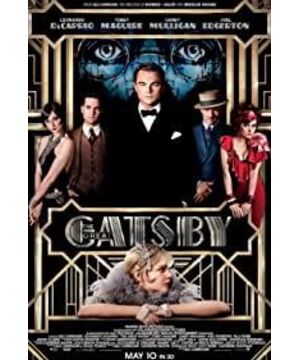Gatsby was rich, to the point where he had nothing to pursue but someone else's wife. In this story, Gatsby not only lost the woman he loved, but also lost his life for it. Maybe people think it's better to be called Poor Gatsby than the Great Gatsby.
From Long Island to New York there is always an extremely dirty road, where countless coal miners dig coal, and the people there look unfortunate, and for them, a clean meal is a luxury. People who are hungry can't see very far, but because of this they are lucky. And Gatsby seems to be lucky, to be windy and rainy, but people who have everything always want to catch those illusory things, just like the green light in Long Island. How could he catch the green light? So he was doomed to be unfortunate.
But this is only the surface of the story. Birth, old age, sickness and death, success and failure are only fleeting events in the world. The essence of life is suffering. No one is more tragic than anyone else. It’s just that the level of suffering is different for everyone. What makes Gatsby amazing is his pursuit of love at all costs. So Nick would say, "All of them together are not as good as you."
Wang Xiaobo said that everyone should have a theme in their life. In his story, there is an old scholar who has studied Xixia writing all his life. His achievements are great, but Xixia writing was not valued at that time, so he was poor all his life. But he's a subject, so he's an amazing person. Wang Xiaobo has mentioned this old scholar in several novels, so I think there is probably a character prototype. The reason why this person is constantly mentioned is because Wang Xiaobo also has a theme in his life, that is, writing novels. He encouraged himself , even if he was anonymous all his life like that old scholar, he was willing.
The pursuit of ideals in life can reach this state, that is, an amazing person.
So at the end of the story, Gatsby is willing to plead guilty for Daisy, no matter whether that person comes to kill him or not, he already has the consciousness of dying for her, which is enough to prove that the love he pursues is not actually getting, but giving? ? Neither. It is a pursuit of the theme of life. At this time, his image in my mind merged with the old scholar who studies the Western Xia language and Wang Xiaobo.
Gatsby is an amazing person so should be looking for a partner, if the other half is not that amazing, how do they live together? So he must marry the woman who once simply loved him, and he doesn't think otherwise. When he kissed Daisy 5 years ago, Daisy became the embodiment of his ideal love, for which he constructed a dream, but there are not many great people in this world, Daisy is not, if everyone is Great man, then there is no great man, so since he is the great Gatsby, it is doomed to a tragic end.
When Gatsby insisted in front of Nick that everything could go back because he was hypnotizing himself that Daisy was still worthy of his love, he made a huge bet on it. Daisy symbolizes his American dream. She is the door for him to completely get rid of his birth, bid farewell to the past, change his fate, enter the upper class, gain fame and fortune, and live happily with Daisy in the most luxurious castle. This is the theme of his life. If Daisy is not worth his love, then the dream he has been pursuing will be completely shattered, so he bets on Daisy.
At the end of the film, the phone rang, Gatsby was full of joy, followed by gunshots, Gatsby died with a romantic vision, many people felt that the ending set by the director was a failure, which made Gatsby a romantic The docile Gatsby is very pitiful, but I think it is such an ending that it more embodies that Gatsby has been desperately chasing his dreams all his life, until he dies, which is amazing.
I still remember when Gatsby pointed to the scenery of Long Island and asked Nick, "Do you think it's beautiful here?" In fact, every theme worthy of our pursuit will be so beautiful in our hearts. Gatsby had seen the beauty, so he was not pitiful. Poor Tom, Daisy, Jordan, and most of us.
View more about The Great Gatsby reviews











